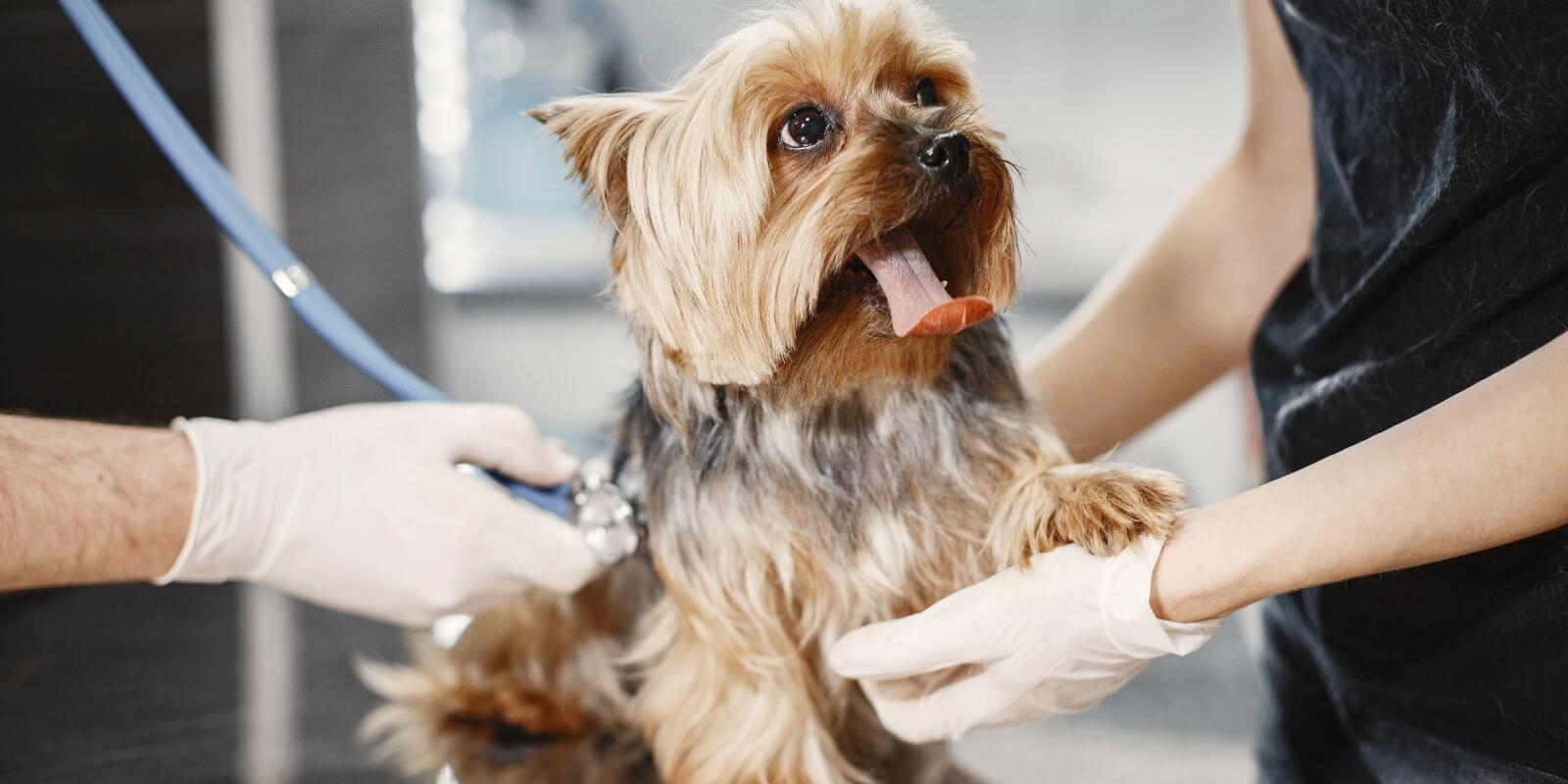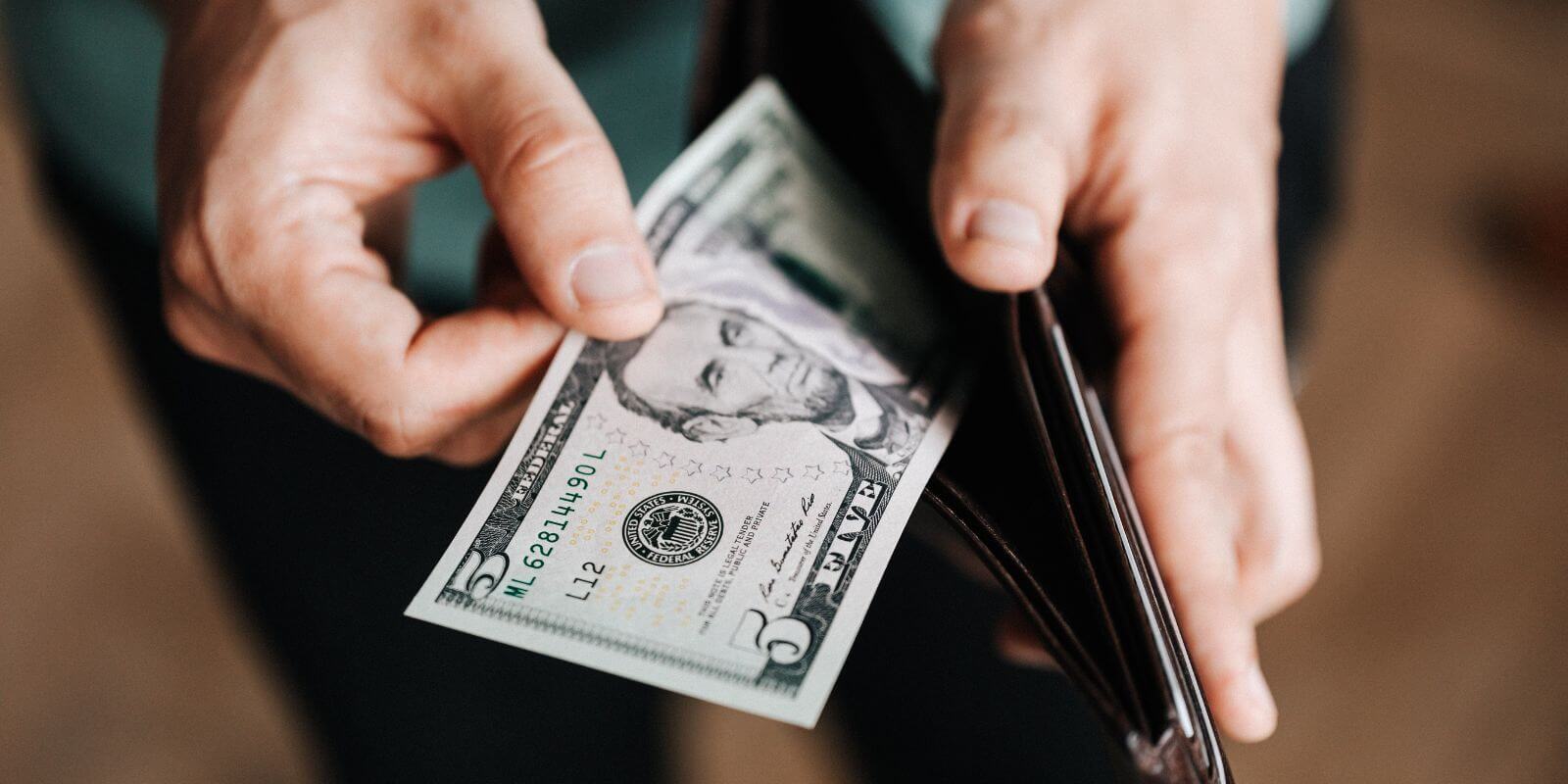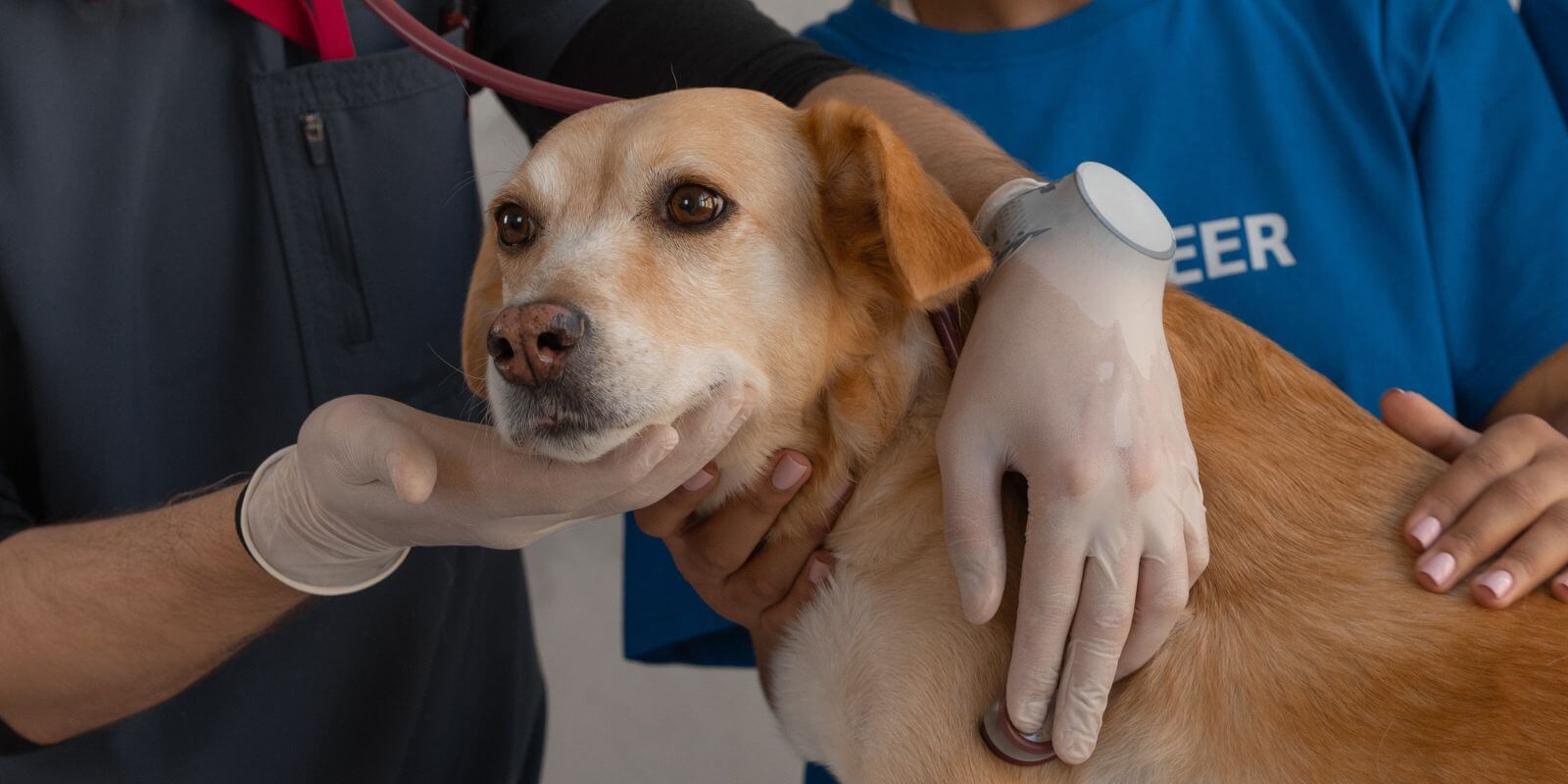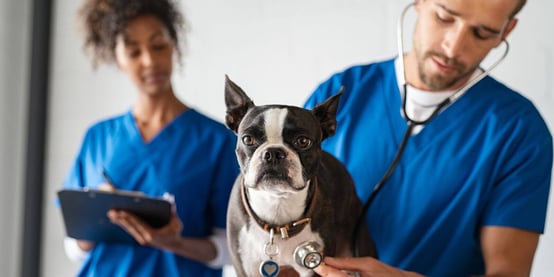Regular veterinary checkups are an essential part of keeping your pet happy and healthy.
Scheduling routine checkups can help prevent more serious medical conditions and catch health issues early, allowing time for proper treatment.
However, one common concern of pet owners is the cost associated with vet checkups. The truth is, these costs can vary depending on your type of pet, your location, and a range of other factors.
In this article, we'll break down the average costs involved in a routine vet visit, including exams, vaccinations, flea and tick prevention, and more, to help you better understand what to expect during your next visit.
What Is a “Routine” Vet Checkup?

A routine vet checkup (sometimes called a wellness exam or preventive care visit) is a scheduled appointment with a veterinarian to check on the overall health of your pet. The goal of a vet checkup is to screen for health issues, issue necessary vaccinations, issue preventive care, and otherwise keep your pet’s health on track.
Most veterinarians recommend scheduling routine vet visits on a regular basis; typically, 1-2 times per year for adult pets and more frequently for puppies, kittens, and senior animals.
What Happens During a Vet Checkup?

During a routine vet checkup, the veterinarian will perform a physical exam to look for any signs of illness, injury, or abnormalities.
A typical vet checkup may include:
- Review of medical history: The veterinarian will discuss your pet's medical history and ask you about any past illnesses, allergies, surgeries, medications, and vaccinations.
- Physical assessment: The vet will assess your pet's body condition, weight, coat, eyes, ears, nose, mouth, teeth, and overall body systems. They may also listen to your pet's heart and lungs, checking for any irregularities or signs of respiratory issues.
- Abdomen check: The vet may check your pet’s belly, gently feeling their abdomen to check for any signs of discomfort, pain, or unusual masses.
- Joint and mobility check: Your vet might also assess their joint health and mobility. This is more common for senior pets, with the goal of identifying arthritis or other musculoskeletal issues.
- Vaccinations: If your pet is due for any vaccinations, your vet may issue these during their routine checkup.
- Parasite prevention: The vet may prescribe preventive medications to protect your pet from parasites like fleas, ticks, and heartworms.
- Dental evaluation: The vet may check out your pet’s teeth, tongue, and gums, and recommend dental care if needed.
- Lab tests: Depending on your pet's age and health, the vet might recommend blood tests, urine tests, or fecal exams to screen for other health issues.
What Is The Average Cost of a Routine Vet Visit?
On average, you can expect to pay around $70 to $150 CAD for a basic routine vet checkup. However, this is a general estimate, and the actual cost can be higher or lower.
Veterinary costs may vary
The average cost of a routine vet visit can vary widely depending on several factors, including the location of the veterinary clinic, the type of pet you have, the specific services provided during the visit, and the overall health of your pet.
Here are a few factors that may influence the cost of a vet checkup:
- Location: Vet costs can vary significantly from one city, county, state, or province to another. Often, urban areas with higher costs of living will have higher vet fees than rural areas.
- Type of pet: The size and species of your pet can affect the cost of vet fees. For example, large dogs may have higher examination fees than small dogs, and dogs may be more expensive than cats, depending on the veterinarian’s policy.
- Veterinary clinic: The type of veterinary clinic you choose can also impact the cost. For instance, private practices may be more expensive than corporate clinics or nonprofit organizations.
- Services included: The specific services included in the routine visit can affect the cost. If vaccinations, parasite prevention, blood tests, or other services are provided, this will make the visit more expensive.
- Age and health of pet: Young animals, senior pets, and animals with pre-existing health conditions might require additional tests or services, which can increase the cost of the vet visit.
When in doubt, reach out to your local vet clinics directly to get a more accurate estimate of their costs. However, keep in mind that they may not be able to provide a quote for all services needed until after they issue the exam and determine whether additional tests, medications, vaccinations, etc. are required.
Vet Checkup Services and Costs
As stated, how much a vet checkup costs can vary depending on a variety of factors. However, it is still helpful to know general costs so you can plan ahead and, if needed, budget accordingly.
Here is a breakdown of the most common routine vet checkup services and their associated costs:
|
Service |
Description |
Cost Range (CAD) |
|
Examination Fees |
This is the core cost of the routine checkup and health evaluation. These fees cover the veterinarian's time and expertise in evaluating your pet's overall health. |
$70 - $140 per visit |
|
Vaccinations |
Vaccinations are crucial for preventing various diseases and maintaining your pet's immunity. The cost of vaccinations varies based on the type of vaccine required and the specific needs of your pet. Common vaccinations include rabies, distemper, parvovirus, and kennel cough. Puppies and kittens may need a series of shots, which can increase the initial vaccination cost. |
$30 - $80 per vaccine |
|
Preventive Medications |
Flea and tick prevention, heartworm prevention, and other preventive medications are essential to safeguard your pet's health. Costs for these medications can vary based on the size of your pet and the specific products recommended by the veterinarian. |
$15 - $40 each |
|
Dental Care |
Routine dental cleanings help prevent dental diseases and maintain fresh breath. This cost includes the typical cost of a dental cleaning and associated procedures. |
$140 - $400 |
|
Blood Tests |
Blood tests are used to diagnose underlying health conditions and monitor your pet's overall health. These tests can detect issues that might not be evident during a physical exam. |
$70 - $250 or more |
|
Additional Services |
Depending on your pet's age, health status, and lifestyle, your veterinarian might recommend additional services such as microchipping, fecal exams, or specialized tests. These services add to the overall cost of the visit but are essential for comprehensive care. |
Varies |
How Do I Pay For Routine Vet Checkups?

Routine vet checkups help keep your pet healthy and can prevent future medical issues (which can be expensive).
A smaller investment in regular checkups is often worth the health and financial savings compared to your pet developing more serious medical conditions. That said, paying for pet care shouldn’t feel like a burden, and it’s important to know that you have options.
Here are a few ways to cover routine vet checkup costs:
- Out-of-pocket: This is where you pay for vet checkups using your own funds. You can usually pay with cash, check, or credit/debit card directly at the veterinary clinic after your appointment.
- Pet insurance: Some pet insurance policies offer wellness add-ons to cover some or all of the costs associated with routine vet checkups, including examination fees, vaccinations, and preventive medications. Be sure to check your policy's coverage details and reimbursement requirements.
- Wellness plans: Some veterinary clinics offer wellness plans that include a set of routine services for a fixed fee. These plans might cover things like annual checkups, vaccinations, and preventive medications. Payment for these plans is often done on a monthly basis or a lump sum for the year.
- Payment plans: Some vet clinics offer payment plans for routine services, especially for patients experiencing financial hardship. These plans allow you to spread out the payments over time. Be sure to ask your vet office about any interest or fees associated with their payment plan.
- Third-party financing: There are companies that specialize in offering financing options for veterinary expenses. These companies provide loans or credit lines specifically for pet care expenses. Some examples include Vetary*, CareCap*, VetBilling.com*, and Wellfund*.
Can’t pay your vet bill? Check out this article on what to do next.
Cover Your Vet Bill with the Help of Furkin Pet Insurance
While the costs of routine vet checkups may vary, it can be helpful to see these expenses as investments in your pet’s long-term health. Regular checkups can catch health issues early and even prevent potential health issues, saving you money and stress in the future.
With comprehensive pet insurance with Furkin, you may be able to get up to 80% of your vet bill covered. While Furkin doesn’t cover routine or preventative care, it does cover emergency care, sick visit exam fees, and more. This can be a huge financial relief and provide peace of mind that you can always cover the vet care your pet needs when they need it. Get a quote for pet insurance from Furkin today!
* Furkin is not affiliated with Vetary, CareCap, VetBilling.com or Wellfund and does not endorse or recommend these products.



